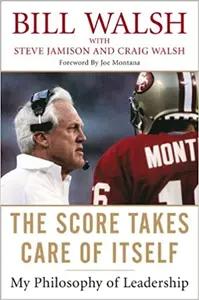The Ultimate Resource 2
By Julian Simon
Category
NatureRecommended by
"The Ultimate Resource 2" by Julian Simon is a thought-provoking book that challenges conventional wisdom and provides a fresh perspective on the issues of population growth and resource scarcity.
Simon’s central thesis is that human beings are the ultimate resource. He argues that people, with their potential for innovation and problem-solving, are the key to overcoming challenges associated with limited resources.
Through extensive research and statistical analysis, Simon counters the Malthusian view that population growth will inevitably lead to global catastrophe. He argues that human ingenuity and technological advancements have historically enabled us to meet the needs of a growing population.
The book explores the concept of "finite resources" and points out that historically, what has been considered a finite resource has continuously expanded due to human innovation. Simon highlights examples from past centuries, such as the transition from whale oil to petroleum, to emphasize the adaptability of human societies.
Furthermore, Simon disputes the notion that resource depletion and environmental degradation are inevitable consequences of economic development. He contends that as technological progress continues, more efficient use and alternative sources of resources will emerge, mitigating environmental impact.
Simon also addresses the issue of poverty, contending that economic growth and development are the most effective means to alleviate poverty and improve living standards worldwide. He emphasizes the crucial role of free markets, entrepreneurship, and innovation in promoting economic progress.
"The Ultimate Resource 2" encourages readers to reconsider their assumptions about population growth, resource scarcity, and the role of humans in shaping the future. It presents a compelling argument for embracing human potential and technological advancement as solutions to the challenges we face.
Overall, this concise and compelling book challenges prevailing narratives by highlighting the power of human ingenuity to overcome resource constraints, while providing an optimistic outlook for the future.
Simon’s central thesis is that human beings are the ultimate resource. He argues that people, with their potential for innovation and problem-solving, are the key to overcoming challenges associated with limited resources.
Through extensive research and statistical analysis, Simon counters the Malthusian view that population growth will inevitably lead to global catastrophe. He argues that human ingenuity and technological advancements have historically enabled us to meet the needs of a growing population.
The book explores the concept of "finite resources" and points out that historically, what has been considered a finite resource has continuously expanded due to human innovation. Simon highlights examples from past centuries, such as the transition from whale oil to petroleum, to emphasize the adaptability of human societies.
Furthermore, Simon disputes the notion that resource depletion and environmental degradation are inevitable consequences of economic development. He contends that as technological progress continues, more efficient use and alternative sources of resources will emerge, mitigating environmental impact.
Simon also addresses the issue of poverty, contending that economic growth and development are the most effective means to alleviate poverty and improve living standards worldwide. He emphasizes the crucial role of free markets, entrepreneurship, and innovation in promoting economic progress.
"The Ultimate Resource 2" encourages readers to reconsider their assumptions about population growth, resource scarcity, and the role of humans in shaping the future. It presents a compelling argument for embracing human potential and technological advancement as solutions to the challenges we face.
Overall, this concise and compelling book challenges prevailing narratives by highlighting the power of human ingenuity to overcome resource constraints, while providing an optimistic outlook for the future.
Share This Book 📚
More Books in Nature

How To Avoid a Climate Disaster
Bill Gates

The Vital Question
Nick Lane

101 Reasons to Get Out of Bed
Natasha Milne

A Walk in the Woods
Bill Bryson

American Buffalo
Steven Rinella

An Inconvenient Truth
Al Gore

Arctica
Sebastian Copeland

Big World, Small Planet
Johan Rockström and Mattias Klum

Cuckoo
Nick Davies

Fauna & Family
Gerald Durrell

Last Chance to See
Douglas Adams

Natural
Alan Levinovitz

Norwegian Wood
Lars Mytting

Of Wolves and Men
Barry Lopez

Plan B 3.0
Lester R. Brown

The Beak of the Finch
Jonathan Weiner

The Humane Economy
Wayne Pacelle

The Skeptical Environmentalist
Bjørn Lomborg

The Ultimate Resource 2
Julian Simon

The Uninhabitable Earth
David Wallace-Wells

The Weather Makers
Tim Flannery

The World Without Us
Alan Weisman

Wild
Cheryl Strayed
Popular Books Recommended by Great Minds 📚

Extreme Ownership
Jocko Willink

Behind the Cloud
Marc Benioff

The Three Body Problem
Cixin Liu

The Score Takes Care of Itself
Bill Walsh

Wanting
Luke Burgis

Range
David Epstein

Against The Gods
Peter Bernstein

The Intelligent Investor
Benjamin Graham

The Ride of a Lifetime
Bob Iger

The Lessons of History
Will & Ariel Durant

Dune
Frank Herbert

When Genius Failed
Roger Lowenstein

The Dao of Capital
Mark Spitznagel

Influence
Robert Cialdini

Hopping Over The Rabbit Hole
Anthony Scaramucci

Titan
Ron Chernow

The Fountainhead
Ayn Rand

Behave
Robert Sapolsky

Blitzscaling
Reid Hoffman

American Kingpin
Nick Bilton

Snow Crash
Neal Stephenson

When Breath Becomes Air
Paul Kalanithi

The Checklist Manifesto
Atul Gawande

High Growth Handbook
Elad Gil

Principles for Dealing With The Changing World Order
Ray Dalio

The Hard Thing About Hard Things
Ben Horowitz

Creativity, Inc.
Ed Catmull

Who We Are and How We Got Here
David Reich

Bad Blood
John Carreyrou

Thinking In Bets
Annie Duke